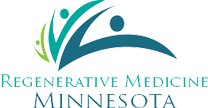Regeneration of hypothalamic neuro-architecture using liver enzyme gene transfer as an approach to treat post-dieting body weight rebound
The major challenge in treating obesity is not just losing weight, but preventing weight from coming back. This proposal examines a new treatment strategy of using a gene transfer therapy to safely target brain mechanisms that control hunger and energy output. The investigator’s previous research indicates that gene transfer of a well-tolerated liver enzyme could revolutionize clinical treatment of obesity, making it easier for obese patients to lose weight safely and minimize later weight gain.
